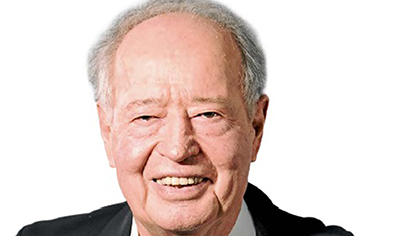In making economic or social choices today, how far ahead do you look? You may blow your Friday wage packet on hedonistic pursuits without any regard to how little food will be on the family table the following week. Or you may run up the mortgage bond to fund the next holiday abroad. We might ascribe such myopic actions as reflecting high personal discount rates. In such cases, future benefits clearly command very little competition with immediate pleasures.
How many years of future cash flow would your business estimate as necessary to justify an acquisition or an addition to plant and equipment?
When a business contemplates an investment decision, how far ahead should it calculate its expected benefits? How many years of future cash flow would your business estimate as necessary to justify an acquisition or an addition to plant and equipment? The longer the estimated pay-back period, the greater will tend to be the present value of the investment decision.
Expecting to get back capital risked in 10 or 20 years, rather than in five years, encourages investment by reducing required returns. It means the application of a lower discount rate to future incomes or expected cash flows. It brings higher present values that are more likely to exceed the current costs of the plant, equipment or acquisition. Future-conscious economic and social actors, with longer time horizons, benefit themselves by saving and investing more. They also benefit their broader communities, by helping to contribute to a larger stock of capital and so more productive workers capable of earning higher incomes.
South African investors are exposed to high discount rates. They are as high as they have been in recent times and are high when compared to discount rates in the developed world. The long-term promises of interest and capital repayments by the SA government are discounted at about 9% a year. Adjusted for expected inflation of 5%, this provides savers with a real return of about 4% a year, with which every risky SA business contemplating capex has to compete for capital.
A required return of more than 10% a year after inflation makes for short pay back periods and so limited capex and limited growth opportunities generally.
A risk premium of at least 5% for a well-established and listed SA company would have to be added to this 4% and so the discount rate applied to any prospective cash flow. A required return of more than 10% a year after inflation makes for short pay back periods and so limited capex and limited growth opportunities generally. It also means much lower present values attached to established SA business so that they can satisfy such demanding expectations. Higher discount rates destroy wealth.
For example, assume you have an investment that earns income, initially worth 100, that is expected to grow at 5% a year over the next 20 years. Assume a developed world discount rate of 6% - made up of 1%, which is all that is available from government bonds, plus an assumed 5% extra for risky equity. The present value of this expected income or cash flow stream will be 320. Moreover 81% of its current market value can be attributed to the income expected after five years.
The same business, with the same prospects in SA, and with the same risk premium, but competing with government bonds offering 9%, would have future income discounted at 14%. This is more than double the discount rate applied to an averagely risky investment in the developed world. It would have a present market value of 116, about a third lower. Of this, only 54.9% of its present market value will be attributed to income to be expected after five years. This forces such a business to adopt a much shorter focus, with fewer viable investment opportunities.
The direction of economic policy reforms in SA should be evaluated through the prism of the discount rate. The purpose of reform must be to build confidence in the future growth and stability of the economy to lower the damagingly high discount rate. Only this can make businesses more valuable, by encouraging their managers to think more about the long term than the short, and to invest more and thus improve the economic prospects for all South Africans.
About the author

Prof. Brian Kantor
Economist
Brian Kantor is a member of Investec's Global Investment Strategy Group. He was Head of Strategy at Investec Securities SA 2001-2008 and until recently, Head of Investment Strategy at Investec Wealth & Investment South Africa. Brian is Professor Emeritus of Economics at the University of Cape Town. He holds a B.Com and a B.A. (Hons), both from UCT.
Get Focus insights straight to your inbox




